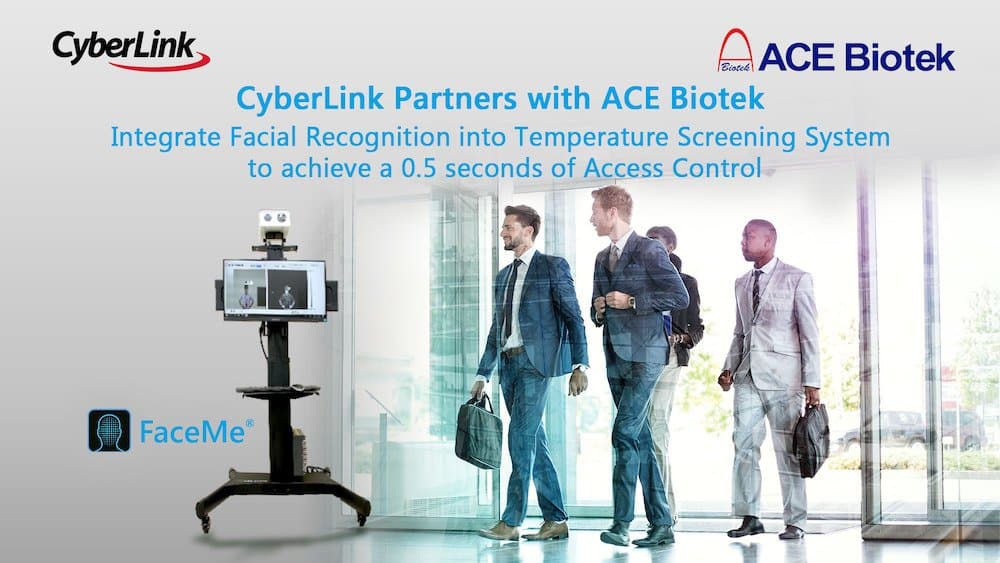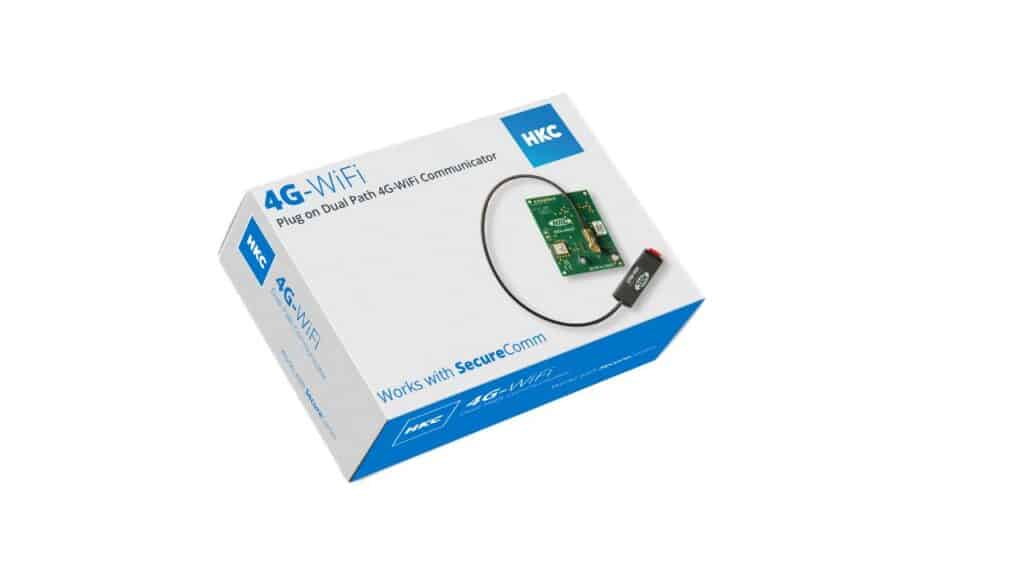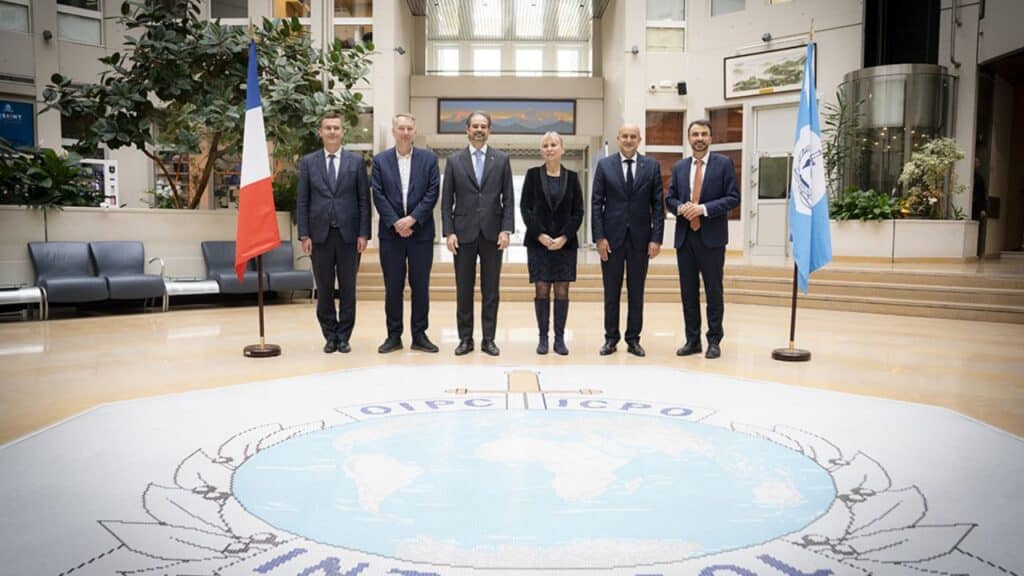CyberLink has announced a new partnership with ACE Biotek, for a fully automated access control solution.
Combining CyberLink’s FaceMe AI facial recognition engine into ACE Biotek’s Wallie Screen Access Control and Health Screening System, the partnership aims to control access and check-in personnel as well as mask wearing verification to maintain a safe environment inside businesses.
“As parts of the world are re-opening to a new normal and others are still actively fighting COVID-19, facial recognition can play a central role in enabling automated, frictionless security, access control and health screening solutions that are critical in both cases,” said Mei Guu, Senior VP of CyberLink.
“With its comprehensive support of IoT hardware, optimised across operating systems, FaceMe integrates seamlessly into ACE Biotek’s Wallie Screen Access Control and Health Screening System, enabling contactless access control, time and attendance, and health measurement solution to businesses and medical facilities.“
ACE Biotek’s Wallie Screen Access Control and Health Screening System (TC-800) is reportedly designed to perform frictionless access control and health checkpoints across industries, including medical and office facilities, primary targets for the company.
By integrating infrared cameras and CyberLink’s FaceMe engine, TC-800 brings together all the necessary features to verify identity with or without mask, detect mask-wearing compliance, and measure body temperature, all in a half-second, making the process almost invisible to users.
“Wallie Screen is a fully-integrated solution verify identity, monitor access, record time attendance and perform health screening, all within a half-second,” said Jason Chou, Director of Medical Solution of ACE Biotek.
“By partnering with CyberLink, ACE Biotek integrates a world-class, highly accurate facial recognition and mask detection engine into its Wallie Screen system, addressing a fast-growing need for frictionless security, health and safety solutions that emerged with COVID-19 and is even more prevalent as parts of the world is reopening.”




